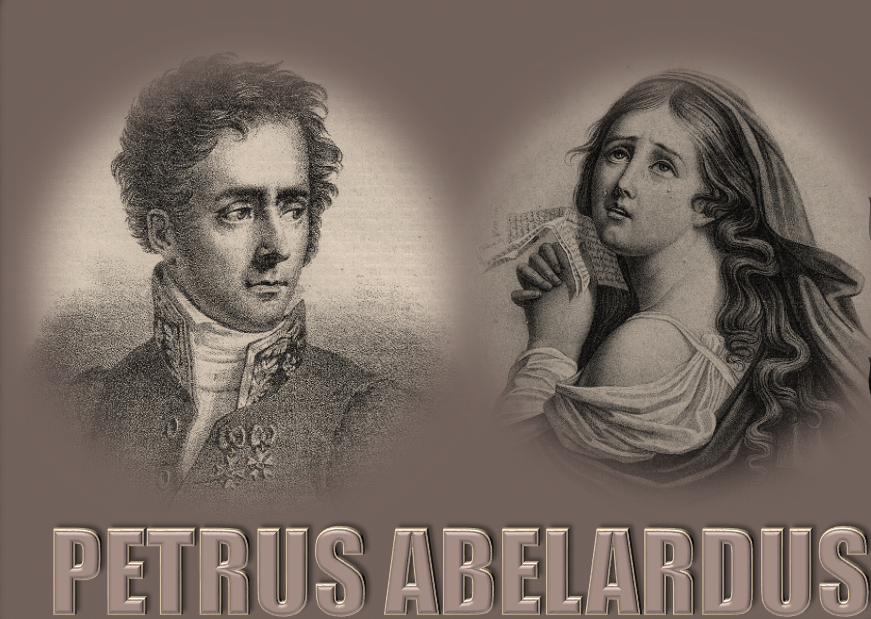The peak name of scholastic philosophy: Who is Petrus Abelardus?
In addition to the discussions he took part in, he also became one of the most popular philosophers in the history of philosophy with his bitter love adventure with the intelligent, wise, and beautiful Heloissa.

Representing the peak of scholastic philosophy in the eyes of many historians of philosophy; French logician, moral philosopher, and theologian Abelardus, who was declared by some as the "dialectic knight" of the 12th century Renaissance and by others as the unique "linguistic philosopher" of medieval philosophy, was born in France in 1079.
Petrus Abelardus, who initiated the debate on "universals", one of the most important debates in medieval philosophy, traveled from place to place, from school to school, giving lectures on dialectics and theology (indeed, another name of Abelardus is Peripateticus Palatinus, meaning Traveler from Palatinum), as well as the discussions he entered into with his intelligent He became one of the most popular philosophers in the history of philosophy with his bitter love adventure with the wise and beautiful Heloissa.
Peter Abelard (c. 1079 – 21 April 1142) was a medieval French scholastic philosopher, leading logician, theologian, poet, composer and musician. In philosophy, he is celebrated for his logical solution to the problem of universals via nominalism and conceptualism and his pioneering of intent in ethics. Often referred to as the "Descartes of the twelfth century", he is considered a forerunner of Rousseau, Kant, and Spinoza. He is sometimes credited as a chief forerunner of modern empiricism.
Petrus Abelardus, who threw aside the privileges and obligations of being the eldest son of a rich family and devoted himself to learning philosophy, theology, and logic, describes this abandonment in his autobiography "Historia Calamitatum" (History of Disasters/A Story of Unhappiness): "...Minerva's I left the battlefield of Mars to take refuge in its bosom. I replaced the armies of war with the armies of reason, preferring dialectics and its defense to all the teachings of philosophy; I also sacrificed the spoils of war to the attacks of discussion.”
Abelard, whose knowledge of ancient philosophy was quite limited and based mostly on the comments of early Christian thinkers such as Augustinus, had at least Aristotle's "Categories", "On Interpretation", Boethius' comments on these works and Porphyrius's in the field of logic. It is known that there are basic sources such as "Isagoge".
Abelardus noticed some inaccuracies and omissions in these sources and focused on them through his fundamental work on logic, “Logica Ingredientibus” (Comments on Logic for Beginners/Comments on Porphyrios), although it presented itself as an extension or adaptation of the traditional Aristotelian framework. It enabled him to develop an original "philosophy of language" and "theory of logic".
Abelard is the first philosopher to use the aforementioned original sources to produce an advanced and comprehensive "theory of the meaning of words and sentences". The main point where Abelard's theory of logic differs from Aristotle's is that it gives more weight to propositions and what the propositions say than to the terms (words) or the meanings of the terms.
Abelard's moral philosophy and theology are based on the conclusion he reached regarding universals in the philosophy of logic.
Influenced by both Stoic ethics and the Christian doctrine of "punishment and reward", Abelardus wrote, "Scito te ipsum" (Know Yourself), also known as "Ethica", in which he revealed his thoughts on ethics, and "Dialogus inter philosophum, iudaeum et christianum" (Philosopher, In his works called "Dialogue Between Jews and Christians", he fictionalizes the subjective element in human relations and emphasizes the importance of "intention" or "intention" in the moral quality of an action.
Abelardus presented his thoughts on theology in his works called "Theologia Summi Boni" (Theology of the Supreme Good), "Introductio ad Theologiam" (Introduction to Theology), and "Theologia Christina" (Christian Theology), which is one of the basic concepts of theology.
According to the reasoning of Abelardus, who deals with various views regarding the trinity, unity, or uniqueness of God through the dialectical method and puts forward various arguments in these works, proving the existence of God, although we, as intelligent beings, are absolutely superior to the world of non-intelligent things, we accept that we are not created by ourselves. We must. If the world were its own cause, it could not be so because it would be superior to that which depends for its existence on something other than itself. Therefore the world is something else; It is brought into existence by a maker or manager we call "God".
The conclusion that Abelardus reached on the basis of this reasoning is that everything that exists or occurs has a reason for existing or occurring. If it were otherwise, it would lead to the claim that there are some things that God makes possible or permits to occur without any cause for them to occur.
Other important works of Abelardus, who died in 1142, include "Sic et Non" (Yes and No), which is a collection of quotations in which he explains the "opposite" views put forward on the "same" subject in the field of theology and their inconsistencies, and pure philosophy. "Dialectica", which contains the most important of his writings, stands out even more.
